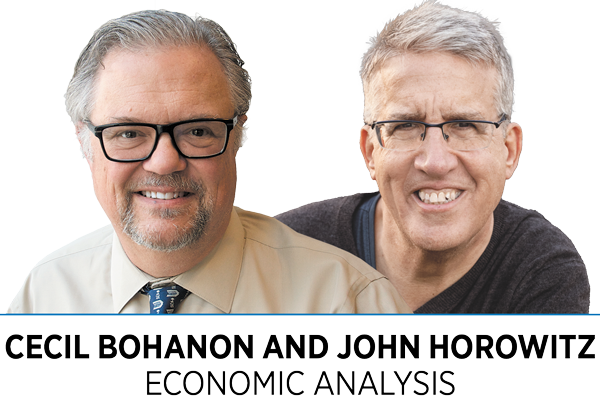Subscriber Benefit
As a subscriber you can listen to articles at work, in the car, or while you work out. Subscribe Now Americans and the world have watched the wildfires ravaging Los Angeles with horror. At the time of this writing, the death toll is at 24, over 12,000 structures have burned to the ground, and property loss is estimated at well over $100 billion. The grim numbers are expected to rise.
Americans and the world have watched the wildfires ravaging Los Angeles with horror. At the time of this writing, the death toll is at 24, over 12,000 structures have burned to the ground, and property loss is estimated at well over $100 billion. The grim numbers are expected to rise.
It is natural for people to ask who is at fault. Fingers are pointing in many directions. Were there cuts to the Los Angeles Fire Department budget? Did the alleged cuts contribute to the catastrophe? Should the state and federal governments have had more proscribed burns to reduce the fire risk? Should homeowners have had to cut back on landscaping to minimize the effect of fires? Should cities have upgraded water infrastructure to handle larger fires? Should electric companies have upgraded distribution networks to reduce fire risk? Were the fires made worse by bad water policies? The list goes on; even hindsight isn’t 20/20.
Any organization, public or private, for-profit or charitable, that provides goods or services should, all other things being the same, do so in a way that uses fewer resources rather than more. If all other things are equal, it should provide better rather than inferior services.
However, deciding whether any particular cost-saving measure or quality enhancement is desirable is rarely straightforward. Contracting with a lower-price supplier for a crucial component might reduce product quality to the organization’s detriment. Changing the nature of the product or service might degrade its quality. Moreover, one might not know with any degree of certainty what the full implications of a decision are until after the fact, sometimes well after the fact. Every organization can be seen as an ongoing experiment in transforming physical and human resources into goods and services for the benefit of other people.
For-profit firms have an advantage in this endeavor: a clear bottom line. The income statement, balance sheet and stock price give feedback on whether a decision on cost or quality has been beneficial. In 1985, Coca-Cola quickly discovered that discontinuing the Old Coke and replacing it with a new formula was not accepted by the public. The company’s annual earnings and stock price declined, although several other factors were likely in play. The original formula was brought back. Unfortunately, municipal, state and federal governments must too often rely on disasters to uncover poor decisions or strategies. Balance sheets are often more effective than ballot boxes.•
__________
Bohanon and Horowitz are professors of economics at Ball State University. Send comments to [email protected].
Please enable JavaScript to view this content.
